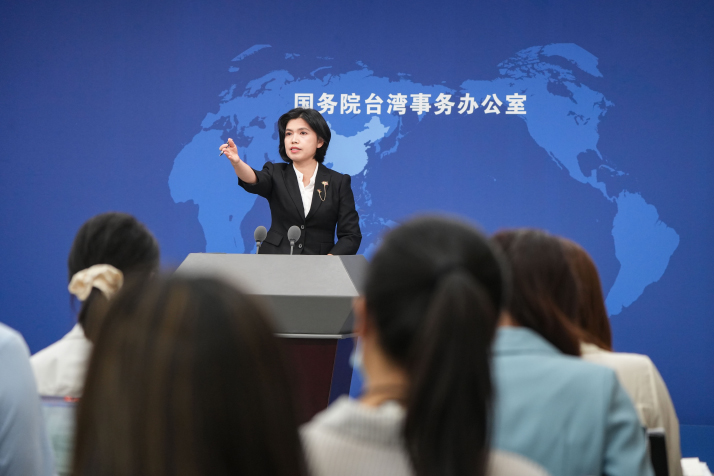| Pacific Dialogue |
| Policy bill or blunder | |
|
|
 Zhu Fenglian, a spokesperson for the State Council Taiwan Affairs Office, takes questions at a press conference in Beijing on September 14 (XINHUA)
On September 14, the U.S. Senate Foreign Relations Committee approved the Taiwan Policy Act of 2022 (TPA), despite stirring unease in the White House and anger in Beijing. Once the TPA becomes legally binding, it will represent a breach of the solemn commitment made by the U.S. side, and a flagrant provocation against China's sovereignty and territorial integrity. The bill, including $4.5 billion in military assistance, is another serious political provocation on the Taiwan question, the most important and sensitive issue at the very heart of China-U.S. relations, following U.S. House Speaker Nancy Pelosi's trip to Taiwan in August that violated the one-China principle and the provisions of the three China-U.S. joint communiqués. Zhu Fenglian, a spokesperson for the State Council Taiwan Affairs Office, said the bill, filled with misinformation and provocation, attempted to contain China with Taiwan, have a fundamentally destructive impact on the Taiwan question, subvert the political foundation of China-U.S. relations, and obstruct China's reunification and national rejuvenation. According to the three China-U.S. joint communiqués, the U.S. recognizes the government of the People's Republic of China as the sole legal government of China. However, it has never severed its political and military contacts with the Taiwan authorities. The significance of the TPA lies more in the U.S. openly raising the level of engagement with Taiwan. The Chinese Government has never given up its efforts to achieve peaceful reunification and it believes the Taiwan question, which arose when the country was weak and chaotic in the late 1940s, will be resolved as national rejuvenation becomes a reality. China's reunification is an inevitable trend and allows no external interference. And the people of Taiwan, too, should have their say. The annual survey on cross-straits relations released by United Daily News, a newspaper in the Taiwan region, on September 20 showed that the proportion of Taiwan residents dissatisfied with regional leader Tsai Ing-wen's handling of cross-Straits relations rose from 40 percent in 2020 to 53 percent today, with 83 percent of the public deeming it necessary to maintain open channels of communication between both sides of the Straits. U.S. President Joe Biden has publicly stated several times that the U.S. does not seek a new cold war with China, does not seek to change China's system, does not seek to counter China by strengthening alliances, does not support "Taiwan independence," and does not intend to seek conflict with China. In a CBS News interview aired on September 18, just a few days after the Senate Foreign Relations Committee's approval of the TPA, Biden reiterated Washington respects the one-China policy and does not encourage "Taiwan's independence." The paradoxical statements testify to the U.S.' separation of legislative and executive powers at work. But in terms of foreign relations, the country is sending confusing signals and if the U.S. continues to try to use the "Taiwan card" to contain China, it's risking a policy blunder of epic proportions. Copyedited by Elsbeth van Paridon Comments to liangxiao@cicgamericas.com |
|
||||||||||||||||||||||||||||||
|
